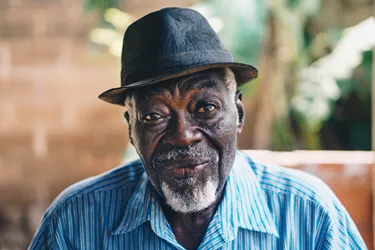Talking about mental health with Stuart Semple
Student Alex recounts his conversation about mental health with Mind ambassador, Stuart Semple.
Glancing over the hard-pressed ink and clutching at the lose bindings, a familiar sense of hopelessness and woe tightens its grip around my stomach. What once served as a refuge from my torment, is now a reminder of my experience and how far I have come.
Tinged with mixed emotions and full of deep questions I look back at the old me and journey I was about to embark upon. A year ago mental health didn’t mean a lot to me, I had heard of conditions like depression and bipolar but could only hazard a guess for what these terms meant, in all honesty I had no idea.
As I skim the initial lines of my first couple of diary entries, my struggle becomes paramount once more. My depression and social anxiety mean that I worry to the nth degree about what people think about me. Following a traumatic experience in the first year of my University degree, my confidence in social situations had plummeted to minute existence. My situation was so severe that I would experience panic attacks when meeting people for the first time. I would even find it difficult to maintain conversations with friends and family, fearing that I was weird and my character dislikeable.
Not wishing to look back but only forward, I continue to flick through the pages, the weight of the book starting to feel less taxing. An intensive course of Cognitive Behavioral Therapy (CBT) along with strong support from a close network of family and friends has helped me regain control of my life. It is clear now that if it were not for the persistent efforts of others, I would not be where I am today. Those who know me best could pick up immediately that my spark had faded, my get up and go attitude had been temporarily lost.
As I reflect on my experience I can see the stages of my recovery. A positive conversation with one of the ward nurses about my day, seem prolific in later entries. A bit of patient-patient bonding would often feature in my account of daily positive experiences. It was pieces of evidence like these, that allowed me to reassess my perception of myself as well as others that have proved massively helpful along the road to recovery.
Ambassador for mental healthy charity Mind, and contemporary British artist, Stuart Semple, tells me about his experience of mental health. Like myself, Semple first encountered difficulties when moving away from home for the first time.
"That isolation from my friends and family wasn’t a good combination…When I was 19 I died for a few seconds from an allergy, and nobody could tell me what I was allergic to so I left that experience with a growing list of fears, things I wanted to avoid and scenarios that would trigger anxious episodes. That came hand in hand with an increasing phobia to food and swallowing anything."
There is no simple way to dealing with a mental health problem, as Semple reveals relief can be found from “a combination of things, being creative and expressing myself. Exercise has helped an awful lot as has mindfulness meditation and a very good psychologist. I think the answer to healing these etchings is in combination of approaches and each of us [are] so different that the menu needs to be personalised”.
Semple also tells me why creative therapy is so instrumental in helping those who need it most. “…Often those suffering find it hard to express their feelings with words, but being creative in a proper therapeutic environment with trained therapists is a very powerful path to healing. The results are phenomenal I meet and hear from so many people who literally tell me creative therapy has changed their lives so I’m on a real mission to help people understand that and to spread it as far as I can”.
As an ambassador for Mind, Semple tells me how he “designed a temporary tattoo last year for the Time To Change campaign … to raise awareness around talking about mental health … I have [also] spoken a lot about my experiences on Mind’s behalf at various events and lectures”.
Although the medical treatment of mental health is not the same as going to receive an x-ray for a broken leg, this cliché, does not suggest it should be viewed in anyway as less severe. As discussions in Westminster surround making further cuts to mental health services, this is an issue that needs appropriate attention and will not just go away as highlighted by both Semples’ and my accounts.
I turn to the last few tattered pages of my diary feeling proud not only of my own personal development in the last year, but also of the work people like Semple, are doing to help those who need support.
Living with an eating disorder can be really difficult, contact your local Mind for support in your area.


Information and support
When you’re living with a mental health problem, or supporting someone who is, having access to the right information - about a condition, treatment options, or practical issues - is vital. Visit our information pages to find out more.
Share your story with others
Blogs and stories can show that people with mental health problems are cared about, understood and listened to. We can use it to challenge the status quo and change attitudes.

















